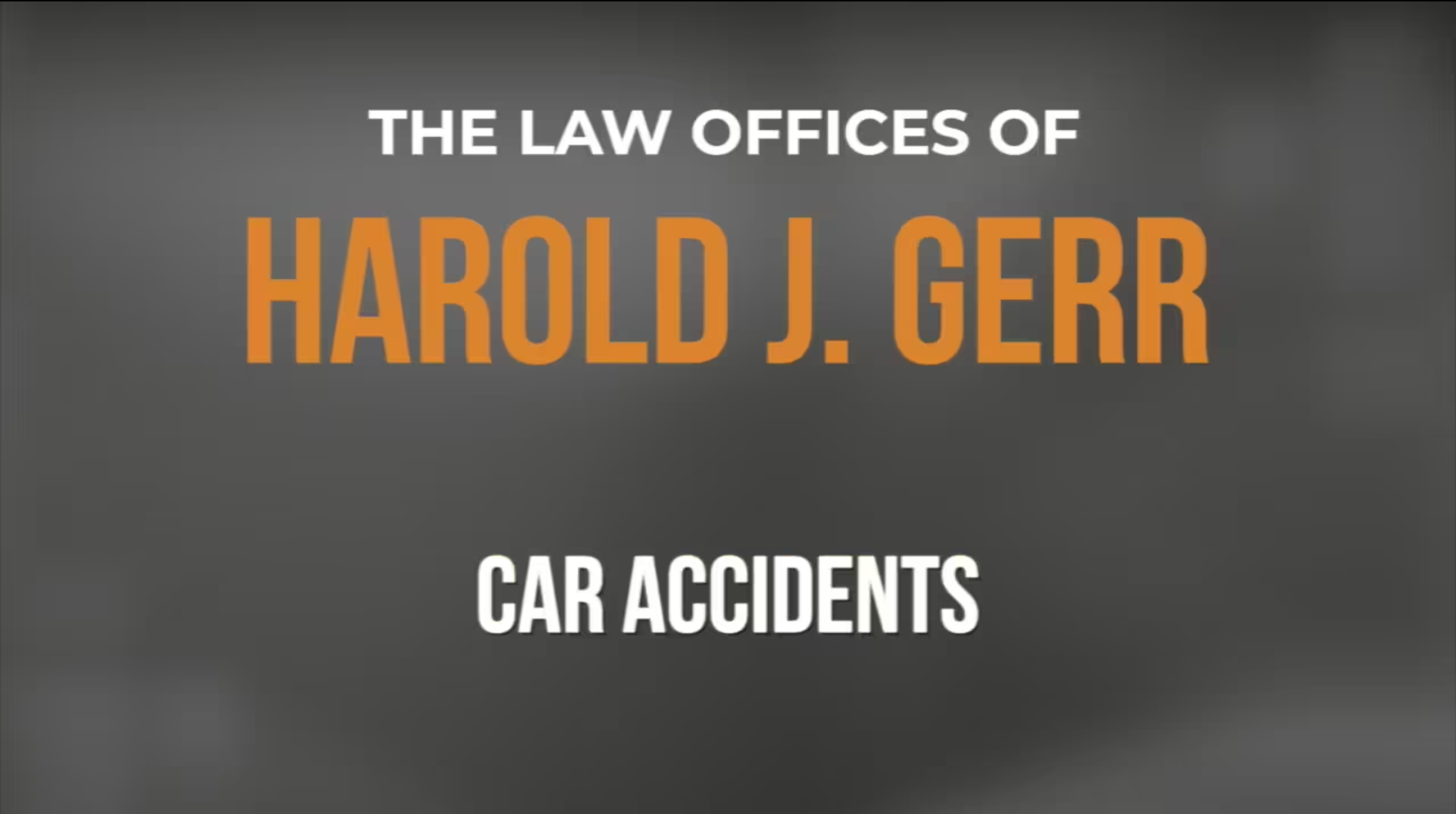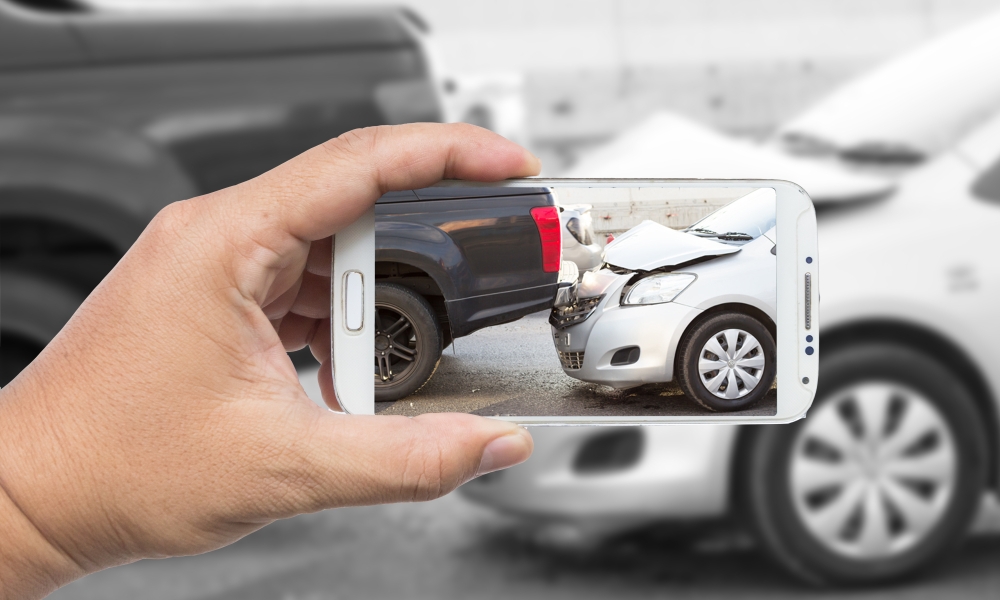
Serving as a large bedroom community for New York City, Piscataway, New Jersey has a population approaching 60,000 citizens living in a variety of old neighborhoods. Because New Jersey features unique and small communities such as this, Piscataway continues to grow without expanding its borders.
In this town, citizens must be aware of growing traffic and unique conditions that cause problems for motorists. Drivers must prepare for congestion that is associated with the many cities serving as suburbs of one of the largest cities in the world. Motorists in the region must be especially careful, as the roads are congested with vehicles every day. Victims should speak to a Piscataway car accident lawyer after an accident occurs. Victims deserve to recover compensation and return to a normal life no matter the severity of the accident.
Seek Justice for Your Injury. Contact The Law Offices of Harold J. Gerr for Experienced Representation Today.
What Specific Issues Cause Increasing Traffic in Piscataway?
Piscataway’s southern border is the Raritan River, and the city shares borders with nine other townships. The river limits movement on the southern border, and drivers often must go with the flow of traffic because there are no shortcuts to avoid congestion. Sitting in the middle of a busy area, Piscataway serves as a pass-through for drivers across North Jersey, and a portion of Interstate 287 runs through the heart of town. While 287 winds its way through North Jersey, it allows traffic from New York City and Upstate New York to access this part of the state. Just to the southeast, the New Jersey Turnpike allows even more traffic to enter the area and cross the river into Piscataway.
A portion of the Rutgers University property is situated in Piscataway, adding more congestion. Several large businesses call Piscataway their corporate home, and they bring more traffic into the city as employees are spread across the region.
Because New Jersey is the most-congested state in America, hosting nine large corporations simply makes the town that much busier. Adding to that traffic is a school system with 10 schools and a large high school hosting young drivers. Additionally, Robert Wood Johnson Medical Center serves as a hub for medical professionals.
Although traffic within New Jersey makes Piscataway a busy place to live, bedroom traffic coming from New York increases congestion in town. Weekend traffic also increases as those living and working in New York City travel to the New Jersey suburbs.
What are Common Causes of Car Accidents in the Area?

Motorists in the Piscataway area should drive with caution knowing that they may be susceptible to the most common causes of car accidents. Citizens may want to avoid driving if they believe there are too many obstacles to a safe journey, and they can advise teen drivers on how to handle themselves on the road. Drivers may also choose to pull over or ask for a ride or carpool to avoid danger.
Distracted driving. Distracted driving is a serious issue in New Jersey, as it was the most common cause of car accidents in 2018, causing 146 accidents. In 2019, the New Jersey Division of Highway Traffic Safety launched the U Drive U Text U Pay initiative with enhanced enforcement around the state in the spring, and legislation introduced in 2020 would make it illegal for drivers to hold their phones and text while sitting in traffic or stopped at intersections, preventing T-bone and pedestrian accidents.
Fines for these offenses range from $200 to $800 and possible license suspension. Drivers should use their Bluetooth or sync systems to make calls or use GPS apps for directions, and they can set their phones aside while behind the wheel. Owing to congestion and traffic conditions in the area, distracted driving is even more dangerous than it would be otherwise, causing rear-end and possible multi-vehicle accidents.
Drunk/impaired driving. According to a study by Safewise, New Jersey has a rate of 1.39 drunk driving deaths per 100,000 people, the lowest in the United States. Although New Jersey ranks well in this category, drivers must remain as diligent as possible to avoid disorientation that might cause head-on collisions. Those drinking alcohol can call a taxi, have a designated driver, or use ride-sharing apps. This advice is especially important if those living in Piscataway travel in and out of New York City for entertainment or dining.
Poor weather conditions. Poor weather conditions occur in Piscataway throughout the year because there are extreme temperature and pressure changes from season to season. Long winters in the Northeast produce snow and ice along with freezing rain and fog. Motorists must slow down to avoid dangerous situations. Drivers should turn on the headlights when it starts to rain, and they should not drive on wintry roads that have not been salted or treated.
Heavy winds throughout the year cause trouble for drivers, as the state does not have variations in elevation that block wind gusts or heavy storms. Tall vehicles, including passenger SUVs or large trucks, can tip or roll over under these conditions. Motorists in small cars might lose control when heavy winds push their vehicles across the road, causing sideswipe accidents. Drivers should not be afraid to engage their hazard lights and pull over until these conditions pass. If possible, motorists should pull into a parking lot, rest area, or otherwise safe residential street.
Teen drivers. Because Piscataway High School has over 2000 students, there is an ample number of new drivers in the area. Teens need more guidance than other drivers, and New Jersey teen driving laws prevent teens from driving too early or in conditions they cannot manage. Those 16 years and older may appear with a parent or guardian at a Motor Vehicle Commission office to apply for a learner’s permit. Teens cannot receive this permit unless they are enrolled in a driver education program, or they may receive an examination permit at age 17 without attending a driver training course. There is a driver’s knowledge test and vision test to ensure everyone’s safety.
Teen drivers who receive a probationary license must hold that license for six months and avoid citations or incidents until they turn 18. A full driver’s license is not available until that time, and parents have the option of signing a parent-teen driving agreement that keeps the parents involved.
Parents cannot allow their teens to drive without advising them properly, riding with them regularly, and teaching them the basics of driving safely. Driving should be considered a privilege so that teens understand the importance of safety and good judgement on the road. Without this critical understanding between parents and teens, hundreds of young drivers may travel every day with the capacity to cause quite a lot of damage.
Adult drivers should be watchful for teen drivers and give them room to drive without anxiety. Additionally, any instances of unsafe driving should be reported to prevent a reckless driver from causing an accident.
- ★★★★★
"Excellent law firm. Mr. Gerr is extremely knowledgeable and personable. He has a genuine interest in his clients. His staff is great also."
T.D. View All Client Reviews
What Should I Do if an Accident Occurs?
Five fatal car accidents occurred in Piscataway in 2020, and these accidents occurred on both interstates and surface streets. Because motorists often cannot avoid areas where accidents often occur, they must understand how to respond when an accident does happen. At the scene of an accident, drivers should do the following:
Stop and stay at the scene. Everyone involved in an accident should stop immediately. No one wants to be accused of leaving the scene of an accident, and it is best to pull to the side of the road whenever possible. If the accident sprawls across the road, motorists should stay in their cars if they are safe. If not, they should exit the vehicle and move to the shoulder as quickly as possible.
Check for injuries. Each person at the scene should check themselves for injuries and check on others who may be incapacitated. Although this is the benevolent thing to do, no one should be moved who is badly injured or appears to be immobile.
Call 911. Someone at the scene must call 911 so that a police officer will respond and help direct traffic around the vehicles and debris. An ambulance should arrive to provide medical care for everyone in need, and a fire unit may arrive to remove trapped victims from their cars. Victims should go to the hospital to seek medical treatment instead of walking away from the accident, no matter how they feel.
Notify the insurance company. Drivers should report the accident to the insurance company but not offer too many details. Accident victims are often disoriented and do not know what to say when speaking with a customer service agent. It is best to tell the insurance company merely that everyone is receiving care and to expect a claim. Insurance companies often record calls, and anything revealed in these calls may be used against the victim after they file a claim.
Speak to the responding police officer. Drivers should speak to the responding officer about the accident without giving too many details. Police officers deal with concrete facts, and they create a basic report of the accident without any speculation about how it may have occurred. Only in extreme cases will victims be expected to speak to an investigative team. Drivers should ask the officer for their name, badge number, and how to retrieve a copy of the report.
Take pictures or videos. Most people today have a cell phone, and victims or their companions should take pictures and videos of the accident scene. The scene will be contaminated soon after all the first responders arrive, and these pictures or videos help a lawyer investigate the crash and possibly shed light on what caused it.
Find eyewitnesses. People often tend to congregate around accidents, and many times they saw precisely what happened. It is important to seek eyewitnesses who might be willing to help, ask them for a basic account of the accident, and determine if they are comfortable speaking to a lawyer. Drivers should obtain the names of witnesses, their contact information, and any other details that seem pertinent at the time. In some cases, eyewitnesses will speak to officers on the scene. At the very least, eyewitnesses can corroborate information uncovered by a lawyer while preparing to file a lawsuit.
Contact a lawyer. A car accident lawyer should be contacted as soon as possible for more information about recovering from the accident.
- $1 MPedestrian Accident
- $845 KCommercial Truck Accident
- $275 KSlip and Fall Accident
What are Common Car Accident Injuries?
Car accident injuries vary in severity, depending on whether the victim wore a seat belt, which part of the vehicle was struck, the position of the victim, and the speeds involved. Victims may feel fortunate that their airbags deployed, but an airbag quite literally explodes with nitrogen gas in 30 to 50 milliseconds after impact. The force of the airbag alone, although not severe, is not pleasant. Therefore, all victims must receive medical care, as they may not notice their injuries right away. The following injuries require immediate medical care, and it is important that victims understand their injuries so that they receive further treatment and recover fully. Common car accident injuries include the following:
Cuts. Broken glass causes cuts and scrapes because victims are stuck in the car as windows and windshields shatter, and all cuts or scrapes should be checked at the scene or by a doctor. These cuts and scrapes can cause disfigurement, infection, and chronic pain. Oftentimes, a bandage is not enough to repair the damage.
Head injuries. Head injuries occur during car accidents as victims hit their heads on the windshield, window, dashboard, seatback, or steering wheel. Milder injuries include concussions that cause headaches, nausea, and disorientation. Some victims often feel a change in mood or personality, and immediate medical treatment helps victims recover and manage their symptoms.
Contusions are bruises on the brain with more severe symptoms than a concussion, such as swelling and bleeding. Symptoms may be even more extreme; swelling on the brain could be fatal. Diffuse axonal injuries may damage the connection between the brain and the rest of the body, causing spinal fluid leaks, internal bleeding, and possibly a coma.
A coup-contrecoup injury damages opposite sides of the brain because of the extreme force of the impact. Unfortunately, the victim’s symptoms could more severe because they suffer two brain injuries at the same time.
Open head injuries. These injuries involve bleeding and possible exposure of the skull.
Acquired brain injuries. This trauma occurs when the victim’s injuries cause brain disorders after the fact.
Damaged ribs. The crumpling of a car may exert force on the victim’s chest, damaging or breaking ribs. Although broken ribs are painful and make breathing difficult, they may also cause a punctured lung, resulting in a potentially lethal situation.
Leg injuries. As cars crumple, leg injuries are common because everyone extends their legs while sitting in the vehicle. Broken bones can occur, or ligament and soft tissue damage may develop in the ankles or knees. Although victims may believe they can walk off these injuries, they should seek medical attention even if they can walk after the accident.
Internal injuries. Internal injuries include bleeding and organ damage that the victim cannot see. Immediate medical attention is required, and victims must be assessed by a medical professional who can create a treatment plan or order surgery. EMTs may insist that victims go to the hospital immediately if these injuries occur, and victims must heed this advice for their own safety.
Burns. Burns include road rash if victims are ejected from the vehicle, or victims might touch scorching pieces of metal or suffer burns if a fire ensues. These burns are painful, and they can become infected no matter how minor they may seem.
Can I Receive Compensation After a Car Accident?
Victims are eligible for compensation after a car accident. Compensation after the accident is not guaranteed, as lawyers must consult their clients and determine their needs. During a consultation, lawyers must see all the evidence that is available and review the police report. Lawyers also read over insurance policies when insurance companies use bad-faith efforts to avoid paying claims properly.
Once the lawyer takes a case, they investigate every aspect of the accident, speak to eyewitnesses, and begin building a case that will result in compensation for the victim. Income statements, medical receipts, and expert testimony help the lawyer calculate total compensation, including the following costs:
Medical care. Emergency medical care begins at the accident scene, and victims may have a long road to recovery ahead. If that is the case, expert testimony or statements from doctors explain how much treatment the victim requires. Bringing forth all this information helps victims show the precise amount of compensation they need to lead a normal life, whether they will recover fully or not.
Lost earnings. Lost earnings and earning potential help the victim pay their bills, support their family, and restart their life given this new reality. Lost earnings pay for the work hours the victim missed or will miss before returning to a gainful position. Lost earning potential determines how much the victim should make if their life had continued normally. Special accommodations for small business owners or independent contractors may help them escape bankruptcy, save their businesses, or hire employees.
Lost quality of life. The victim’s life changes the moment they suffer these injuries, and their quality of life diminishes because they cannot work, cannot enjoy their hobbies, cannot travel, and cannot interact with their families as they once did. These victims might lose relationships, and their lawyer determines the noneconomic impact of the accident that cannot be recorded on a ledger.
Punitive damages. Punitive damage caps in New Jersey limit awards to five times the compensatory damages or $350,000. These damages are not available in every case, as they penalize the offending driver or entity for cruel, malicious, and senseless actions that go above and beyond simple liability.
Wrongful death. Wrongful death cases pay funeral expenses and other final costs to the victim’s estate, benefiting the spouse, children, parents, or other dependents. The lawsuit also seeks damages for a loss of financial support, loss of care or guidance, and the loss of household services. The family should ask a lawyer who should file this suit and how New Jersey intestacy laws dictate the distribution of these funds.
Get the Compensation You Deserve. Let The Law Offices of Harold J. Gerr Fight for Your Rights. Call Us Today at 732-537-8570 or Fill Out Our Convenient Online Contact Form For a Free Consultation.
Should I Retain a Car Accident Lawyer?
Retaining a car accident lawyer is a safe and efficient way to approach the litigation process. Car accident victims should not attempt to represent themselves. Lawyers are trained negotiators that help in reaching a settlement or going to trial. Victims should not speak to representatives of the defendant or the insurance company, as a lawyer can respond to all requests, begin settlement talks, and hope to receive appropriate compensation before going to trial.
Victims can focus on their recovery and allow their lawyer to build a compelling case. This is especially important because New Jersey courts use comparative negligence to determine compensation for accident victims. The defendant’s lawyer will attempt to prove that the victim is responsible for more than 50 percent of the accident, thereby nullifying any compensation available. When car accident victims have a lawyer, the lawyer shows that the victim is not responsible for the accident and deserves compensation.
Because these cases may take time to resolve, victims need a lawyer who provides them with progress updates, explains the legal process, and advises clients when these cases become especially complex. Lawyers even appeal cases to the state Appellate Division of the Superior Court of New Jersey after an unfavorable judgment.
Car Accident Areas Served
Piscataway Car Accident Lawyers at the Law Offices of Harold J. Gerr Serve Local Victims
If you are involved in a car accident, you deserve vigorous representation that protects your rights and helps you to recover. The Piscataway car accident lawyers at the Law Offices of Harold J. Gerr help victims receive the compensation they deserve and move on with their lives. Call us today at 732-537-8570 or contact us online for a free consultation. Located in Highland Park, New Jersey, we serve clients throughout New Brunswick, Somerset, Piscataway, Edison, South River, Sayreville, Metuchen, East Brunswick, South Plainfield, Fords, Middlesex, Old Bridge, Iselin, Bound Brook, Perth Amboy, and Colonia.









